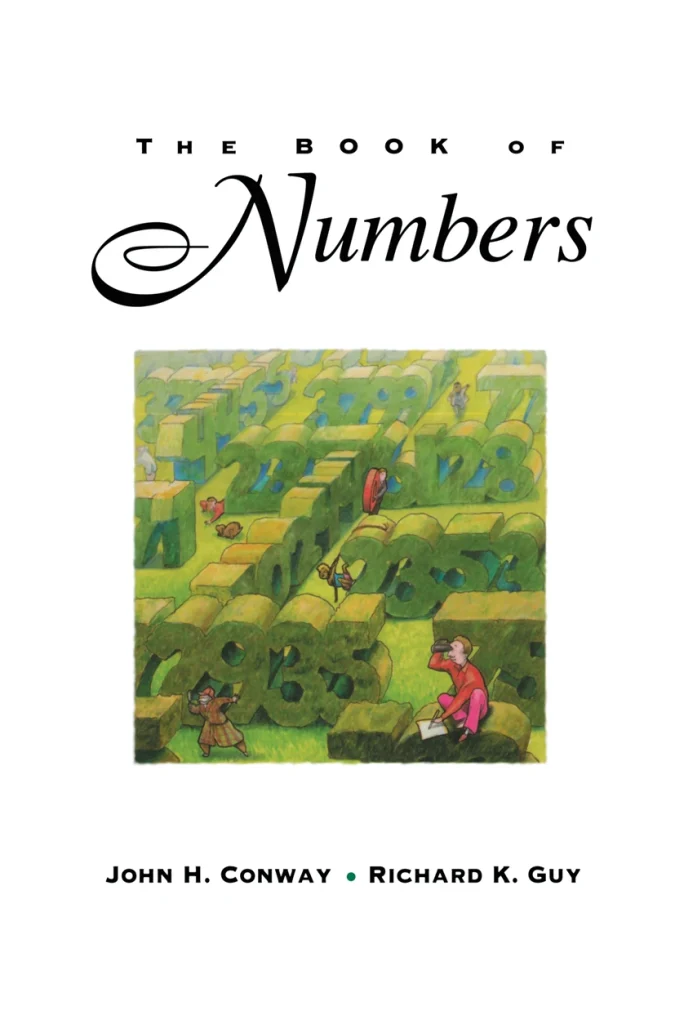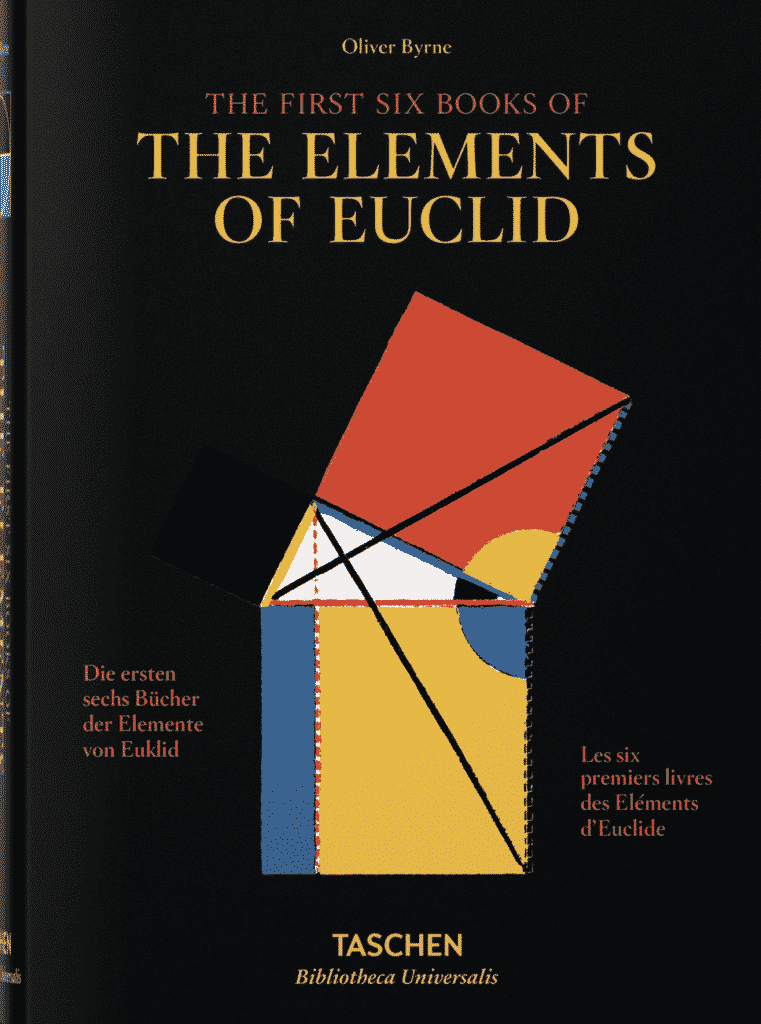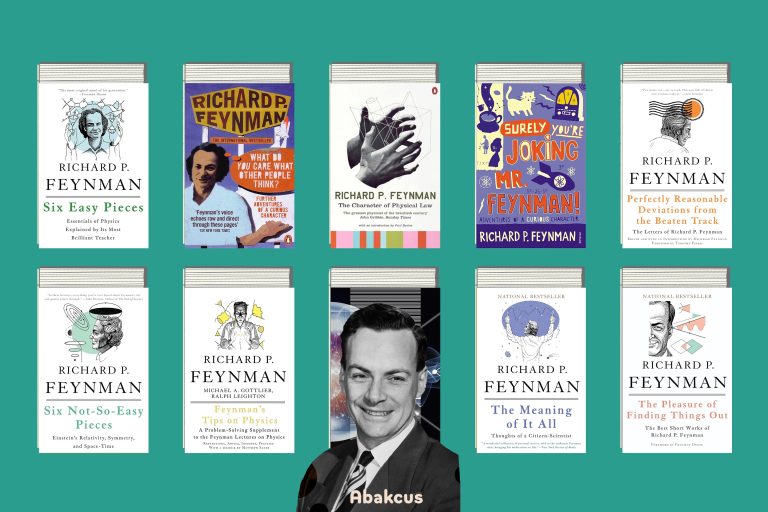Throughout the ages, some of the greatest minds have pondered over complex mathematical problems and theories, leaving behind a rich legacy of accomplished work. This list compiles over 20 classical math books penned by these brilliant mathematicians. Each math book is a treasure trove of profound insights and breakthroughs, offering readers a window into the world of mathematical thought as seen by the geniuses who shaped its history. Whether you’re a math enthusiast, a student seeking depth, or a professional mathematician, these timeless masterpieces will undoubtedly add immense value to your understanding of this fascinating discipline.
From the geometric revelations of Euclid to the algebraic innovations of Al-Khwarizmi to the calculus foundations laid by Newton and the fractal geometry explored by Mandelbrot, the legacy of mathematical literature is vast and magnificent. Euclid’s “Elements,” regarded as one of the most influential works in mathematics, established the foundations of geometry. Al-Khwarizmi’s “Al-Kitab al-mukhtasar fi hisab al-jabr wa’l-muqabala” ushered a new era in algebra. Newton’s “Philosophiæ Naturalis Principia Mathematica” introduced fundamental principles of physics and calculus. Mandelbrot’s “The Fractal Geometry of Nature” opened a completely new vista in understanding geometric patterns.
These books stand as a testament to the brilliance of their authors, representing monumental leaps in mathematical thought and understanding, and continue to be compulsory resources for anyone seeking to understand the underpinnings of modern mathematics.
Einstein’s quote, “If Euclid failed to kindle your youthful enthusiasm, then you were not born to be a scientific thinker,” speaks volumes about the timeless impact of Euclid’s work. It underscores the notion that the understanding and appreciation of Euclidean geometry are fundamental markers of a scientific mind. In Einstein’s perspective, Euclid’s mathematical principles ignite a spark in those naturally inclined to scientific thought, stirring a sense of wonder and curiosity.
This enthusiasm for Euclid’s teachings can be seen as a litmus test for future scientific thinkers, pointing to an inherent connection between mathematical understanding and scientific reasoning. The sheer elegance and logic embodied in Euclid’s “Elements” have kindled countless flames of passion for mathematics and science throughout the centuries.
Drawing inspiration from Einstein’s statement about Euclid’s influence, we can appreciate the power of Euclidean principles to shape scientific and political minds. A striking example is Abraham Lincoln, the 16th President of the United States. Lincoln, known for his leadership during the American Civil War and the abolishment of slavery, found great value in Euclid’s “Elements.” He famously read and studied the book to sharpen his logical thinking and reasoning abilities. His decision to do so attests to the universal and timeless appeal of Euclidean principles, demonstrating their profound influence beyond mathematics. For Lincoln, Euclid’s logical deductions and axiomatic approach provided the intellectual framework to make informed and rational political decisions, further underscoring the intrinsic link between mathematical understanding and effective leadership.
That’s why each of these works represents a monumental contribution to the field of mathematics, illuminating the path for future scholars and forever changing our understanding of the mathematical universe.
Love it or hate it, math indeed makes the world go round. Mathematics is the universal language that binds us all, irrespective of our cultural or geographical differences. Math is at the core of everything we do, from the mundane—like calculating expenses or measuring ingredients for a recipe—to the exceptional, such as sending astronauts into space or decrypting complex codes.
Mathematics equips us with logical reasoning and problem-solving skills and helps us understand and navigate the world in a more structured way. It’s no wonder, then, that the works of these mathematical titans continue to captivate, provoke thought, and stimulate intellectual curiosity. So, whether you’re a math lover or skeptic, exploring these classical books can provide a new perspective on math’s integral role in our lives and the world at large.
20+ Classical Math Books by the Greatest Mathematicians

While some of the mathematical concepts discussed in these books may initially seem esoteric or daunting, they are nonetheless a worthwhile addition to any math enthusiast’s library. The challenge lies not only in comprehending these complex theories but also in appreciating the profound intellectual leaps that these trailblazing mathematicians made.
These time-honored works offer not just knowledge but also a deep sense of the mathematical landscape as it developed over centuries. Even if some ideas remain elusive upon first reading, the perseverance and curiosity that led you to explore this list will undoubtedly help you unravel their intricacies over time. Keep these books in your collection, as they represent a rich tapestry of mathematical thought that will continue to inspire and challenge you.
Kurt Gödel, a brilliant mathematician and logician, was a true game-changer of the twentieth century. Fleeing from Nazi Germany, he found refuge at the Institute for Advanced Study in Princeton. There, he joined a group of renowned mathematicians and contributed to the field in extraordinary ways.
His book, simply titled The Consistency of the Continuum Hypothesis, is an iconic piece of modern mathematics. First introduced by George Cantor in 1877, the continuum hypothesis poses the idea that there are no numbers between integers and real numbers. Gödel tackled this problem in his book and presented his proof.
In 1999, Time magazine recognized Gödel’s significance by ranking him higher than other influential scientists of his time. His famous 1931 “incompleteness theorem” revolutionized the world of mathematics and logic, demonstrating that certain problems cannot be solved using any set of rules or procedures. This proof caused a monumental impact beyond the realm of mathematics.
If you’re a fan of mathematics, logic, or just love a good intellectual challenge, The Consistency of the Continuum Hypothesis is a must-read that will both fascinate and astound you.
Discover the origins of algebra and the genius behind it with al-Jabr, the groundbreaking work by al-Khwārizmī. In this book, al-Jabr, al-Khwārizmī introduces modern algebraic methods that revolutionized problem-solving.
Considered the foundation of algebra, al-Jabr is an influential piece that shaped the way we approach equations. It even gave birth to the word ‘algebra’ itself. Thanks to Friedrich August Rosen’s translation in 1831, this significant work became accessible to a wider audience. Rosen’s insightful introduction and notes add depth to the book, making it a must-read for those fascinated by the history of mathematics.
Embark on a journey through the essential algebraic techniques of reduction, completion, and balancing, alongside step-by-step solutions to polynomial equations of up to the second degree. The relevance of al-Jabr in modern times is a testament to ben Musa’s everlasting legacy in mathematics.
Discover the groundbreaking work of Leonardo of Pisa, also known as Fibonacci, in his book Liber Abaci. First published in 1202 and expanded in 1228, this encyclopedic masterpiece aimed to share revolutionary mathematical knowledge and computational techniques with Italian readers. Dive into Fibonacci’s exploration of the Arabic numerical system, algebraic solution techniques, and a wide range of applied problems, including cost and profit, partnership, and mensuration.
Liber Abaci not only established a genre for European commercial arithmetic books but also introduced the famous “Fibonacci sequence” through a rabbit breeding problem. For centuries, this influential work remained untranslated, until now.
In this remarkable English translation by Laurence Sigler, a Professor of Mathematics at Bucknell University, you will find a valuable resource for understanding medieval European mathematics. Sigler’s previous translation of Fibonacci’s Liber Abaci was praised by mathematical historians, giving us confidence in the factual information presented in Boldassarre Boncompagni’s compilation.
Although the text may be dense and challenging to read, Sigler’s translation includes a brief introduction and serves as a serious research tool for students and a valuable reference for any undergraduate math library. Delve into the world of Fibonacci’s Liber Abaci and witness the evolution of western mathematics.
The Foundations of Geometry by David Hilbert is a book that explores the transformation of geometry in the 19th century. Hilbert explains how geometry shifted from describing the physical world to becoming an axiomatic approach. He believes that we should use the same language to describe everyday objects as we do for points and lines.
This accessible and relevant system has made Hilbert’s work a cornerstone for those wanting to understand the foundations of geometry.
Discover the captivating world of “On Numbers and Games” by John Conway! In this marvelous book, Conway explores surreal numbers and unveils a mind-boggling array of infinite and infinitesimal numbers alongside the real numbers. Overflowing with creativity and insight, it’s a must-read for any math enthusiast.
Now, after 25 years, a new edition has arrived, making this long-out-of-print gem accessible once again. While the changes are minimal, with some corrections and an insightful Epilogue discussing recent progress in studying Surreal Numbers, the book still offers intriguing ideas and thought-provoking questions for further exploration.
One of the most fascinating aspects I discovered was Conway’s revelation of the connection between numbers and combinatorial games. A number, it turns out, can be viewed as a unique kind of game. This theory is further developed in the first part of “On Numbers and Games,” with promised advancements in a subsequent volume, “Winning Ways,” co-authored by Elwyn Berlekamp and Richard Guy. “Winning Ways” continues the journey, delving into the theory of combinatorial games and applying it to an array of captivating games.
From there, the theory continued to evolve, leading to the publication of “Games of No Chance,” a collection of research from a recent workshop. And there’s more to come with a forthcoming sequel. This book acts as the gateway to an ongoing, living mathematical theory.
The new edition of “On Numbers and Games” splits the original two-volume set into four, providing readers with the first volume of this comprehensive work. While lightly revised, the authors have included exciting “Extras” at the end of each chapter, along with references to recent advancements. With stunning color images sprinkled throughout, it’s a joy to have this beautifully produced book back in print.
Don’t miss out on the opportunity to explore the enchanting world of “On Numbers and Games” and delve into the groundbreaking theories of John Conway.
This timeless mathematical classic introduced a groundbreaking field of mathematics that continues to have a profound impact on various areas such as topology, number theory, analysis, logic, and more. What sets this work apart is its ability to explain complex ideas in a clear and straightforward manner, making it accessible to anyone with a solid understanding of college-level mathematics.
In this book, Cantor starts by establishing the basic definitions and operations of cardinal and ordinal numbers. He delves into concepts like “cardinality” and “ordinality,” exploring topics such as the addition, multiplication, and exponentiation of cardinal numbers. He also examines the smallest transfinite cardinal number, the ordinal types of ordered sets, operations on ordinal types, and the ordinal type of the linear continuum, among others. Additionally, Cantor presents a theory of well-ordered sets and explores the ordinal numbers of these sets, as well as the properties and extent of transfinite ordinal numbers.
To provide context, Philip E. B. Jourdain, a renowned mathematical historian, offers an 82-page introduction. He discusses the contributions of Cantor’s predecessors such as Veierstrass, Cauchy, Dedekind, Dirichlet, Riemann, Fourier, and Hankel, and summarizes and analyzes Cantor’s earlier work. The book also includes a bibliographical note that references further investigations into the theory of transfinite numbers by influential mathematicians like Frege, Peano, Whitehead, Russell, and others.
This book is an excellent choice for students looking to explore this exciting branch of mathematics. It serves as a comprehensive resource and introduction to the theory of transfinite numbers, making it a valuable addition to any math enthusiast’s library.
Looking to dive into the fascinating world of algebra? Look no further than Leonhard Euler’s Elements of Algebra. Published more than 250 years ago, Euler’s guide remains a timeless and easily understandable introduction to this essential field of mathematics.
Starting with the basics, this book takes you on a step-by-step journey, equipping you with the skills to solve equations of varying difficulty. Along the way, Euler introduces you to fundamental concepts that have stood the test of time, such as logarithms and infinite series. Plus, with a valuable addendum by Joseph-Louis Lagrange, this book covers all the essential topics, including continued fractions and Diophantine equations.
Whether you’re a math student or simply curious about expanding your knowledge, Elements of Algebra is a classic text that is sure to inspire and enlighten.
Originally published in 1801 when Gauss was just 24 years old, Disquisitiones Arithmeticae is considered one of the foundational texts in modern mathematics, alongside Euclid’s Elements and Newton’s Principia.
Gauss revolutionized mathematical concepts and set new standards for rigor with this masterpiece. From his treatment of congruence to his study of quadratic forms, Gauss’s ideas continue to shape our understanding of number theory. With modern rigor, he provided the first proofs for prime factorization and quadratic reciprocity, which he considered among his most significant contributions.
Today, Gauss’ work on quadratic forms is taught in undergraduate courses, while more advanced topics such as class number and genera are explored at the postgraduate level. Although some parts of the book have been refined in the context of quadratic field theory, its impact on modern algebraic number theory is undeniable.
This corrected reprint of the first English edition, translated by A. A. Clarke, is a testament to the clarity of Gauss’s writing and the skill of the translator. Whether you’re a history enthusiast or a number theory student, “Disquisitiones Arithmeticae” is a must-have for any math library.
Experience the revolution in mathematics brought about by Carl Friedrich Gauss – get your copy of “Disquisitiones Arithmeticae” today!
The Book of Numbers
With its unique approach, The Book of Numbers delves into various number sequences, individual numbers, and even number structures to provide an immersive exploration of this fascinating topic.
Conway expertly navigates through specific number sequences like primes and Stirling numbers, delving into numbers with special significance such as the square root of 2 and π. He also explores the intriguing world of figurate numbers, algebraic numbers, complex numbers, infinitesimals, and surreal numbers, captivating readers with the diverse properties and structures that numbers possess.
To capture your attention from the beginning, The Book of Numbers kicks off with an engaging chapter on number words, revealing interesting English words that hide numbers within them. Prepare to be amazed as you uncover the hidden meanings behind common words like biscuit and uncial.
While the aim of The Book of Numbers is to cater to curious readers without an extensive mathematical background, some sections do require a higher level of mathematical reasoning. Although the book is devoid of complex formulas and equations, the combinatorial and geometric topics may prove challenging for the average reader to understand unaided.
The Book of Numbers holds special appeal for mathematicians who possess some prior knowledge of the subject matter. As you delve into the book’s pages, you’ll be delighted by the surprising connections and revelations that Conway reveals, expanding your understanding of the intricate world of numbers.
Embark on a captivating journey through the realms of numbers with The Book of Numbers by John Conway. Whether you’re a seasoned mathematician or simply have a curious mind, this book is sure to impress with its intriguing content and unique perspective.
Mathematics is a fascinating subject that has created a world of inspiration and innovation throughout human history. Yet, to understand the complex world of mathematics, one needs to understand the core principles that govern the subject. In this regard, the legendary book, “The First Six Books of the Elements of Euclid,” is one of the most important works ever written in the field of Mathematics.
The book was written in 300 BC, a time when there were no textbooks to learn and understand mathematics. Euclid, the great Greek mathematician, created this masterpiece, which outlined the fundamental principles of mathematics. The book’s influence is apparent in the works of great mathematicians throughout history, including Newton, Descartes, and Einstein. The Elements of Euclid lays the foundation for modern math, and to understand the subject, you must start with this book.
Oliver Byrne was a civil engineer! However, today we know him because of his ‘colored’ book of Euclid’s Elements. He loved Euclid’s Elements and decided to make his own version in the mid-19th century, and his version of Euclids’ Elements considered a masterpiece of Victorian printing. And many thanks to Taschen, we can access Oliver Byrne’s version of Euclid’s Elements!
Oliver Byrne – The First Six Books of the Elements of Euclid from TASCHEN is a classic math book for several reasons. Firstly, the book is beautifully designed and it is full of colorful diagrams and illustrations, and each is color-coded to represent different parts of each geometric shape. This makes it easier for readers to understand and visualize complex geometric concepts.
Euclid’s Elements was created to teach logical reasoning skills. Mathematical reasoning encompasses the systematic steps taken to arrive at logical conclusions. The book teaches how to establish connections between basic or self-evident assumptions and, from these connections, to prove or derive everything else within the subject. Reading the book helps to develop logical reasoning patterns that can be applied in different aspects of life.
For mathematics to be effective, it must be communicated accurately and clearly. The book speaks to an unversed individual in math, teaching various concepts step by step with clear writing and concise definitions. This clarity allows for an easy understanding of mathematical concepts, enabling the ability to apply those concepts in different fields.
The Elements of Euclid’s main mathematical concept is plane geometry, which studies point, lines, angles, and corresponding geometric figures. The book teaches how to observe geometric shapes, relationships, and connections carefully. The students become consciously aware of the shapes, sizes, and distances of geometric shapes, enabling them to use geometric principles to solve various mathematical issues. Understanding these concepts develops a geometric mindset, which can be useful in architecture, engineering, science, and technology.
To summarize, Oliver Byrne – The First Six Books of the Elements of Euclid from TASCHEN is more than a math book; it’s a piece of art. The visually appealing layouts, fascinating colors, and sketch drawings provide an artistic approach to math. It is a book that you can appreciate for its beauty as well as its educational value. And having a copy of the book is like owning a piece of history. The book is considered to be extremely rare, so being one of the few people to own a copy is something special. There’s something magical about having an artifact that represents mathematical history and knowledge.


















